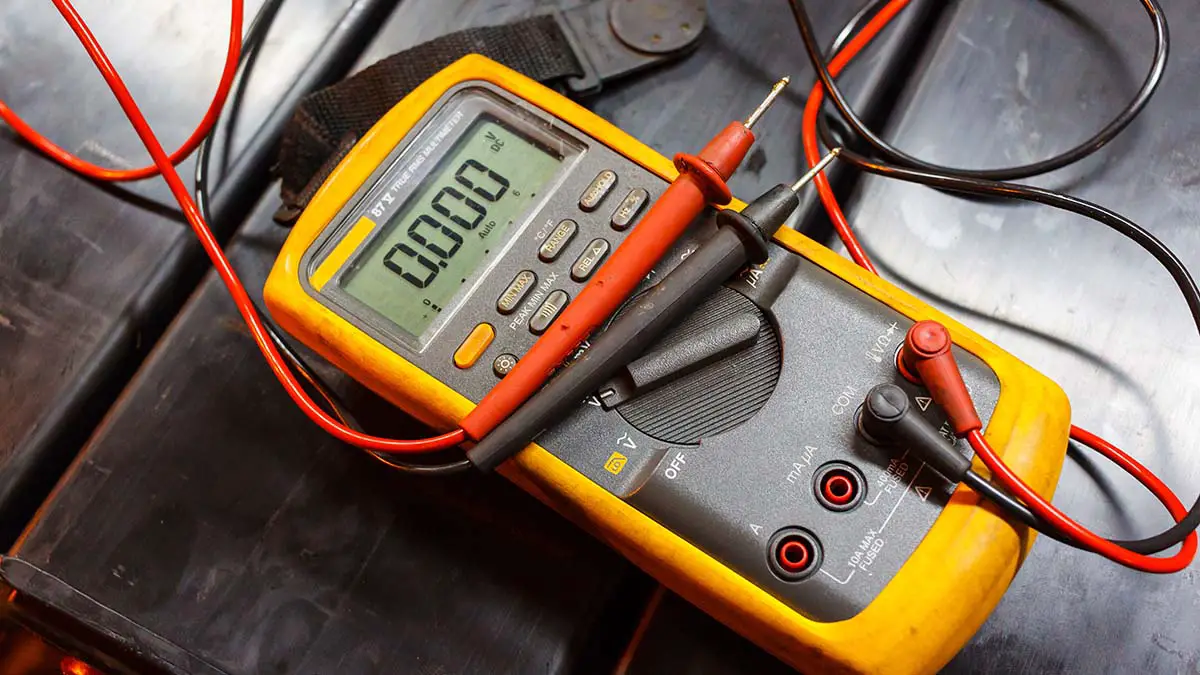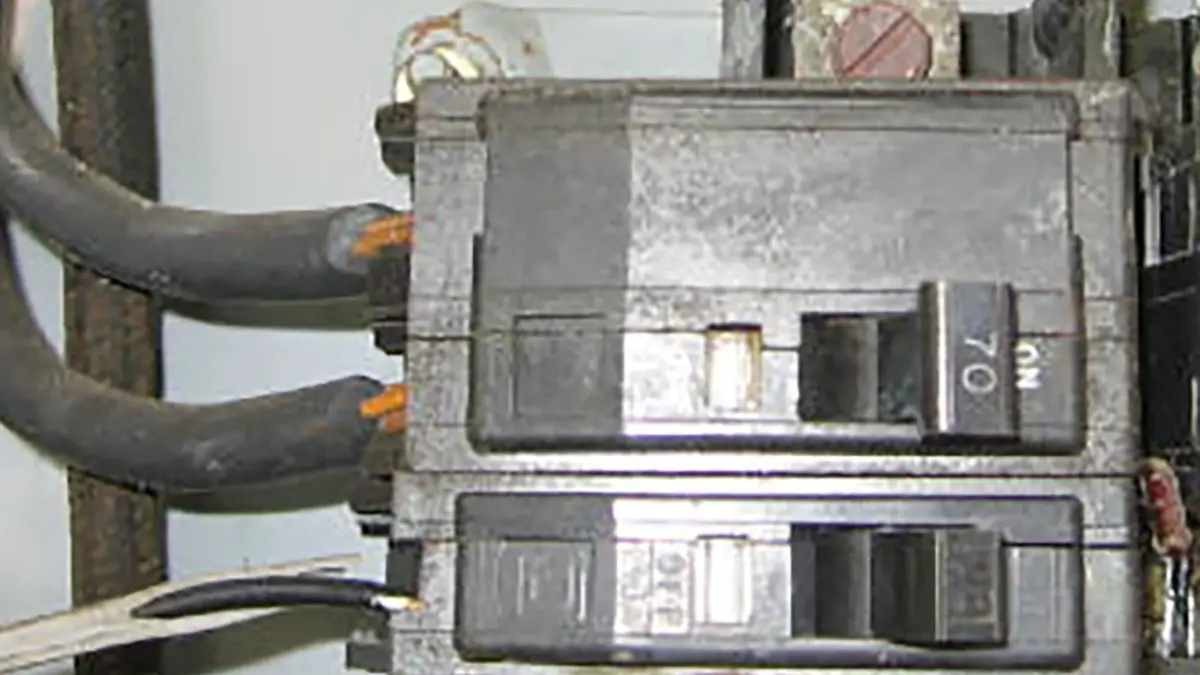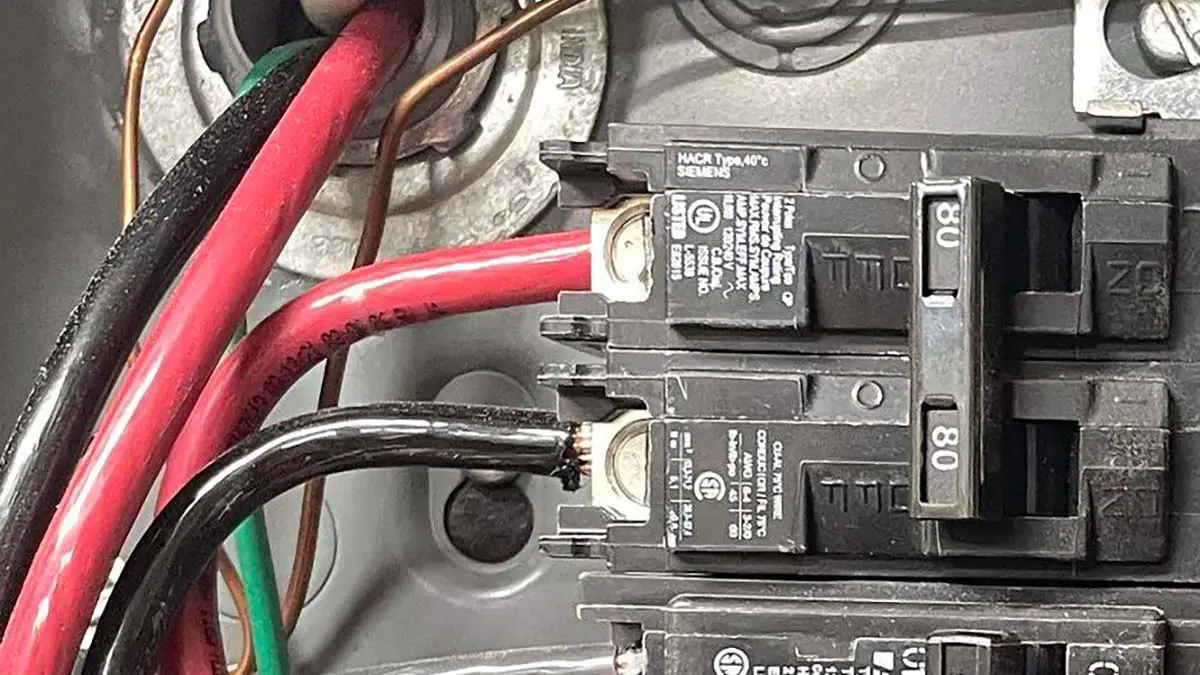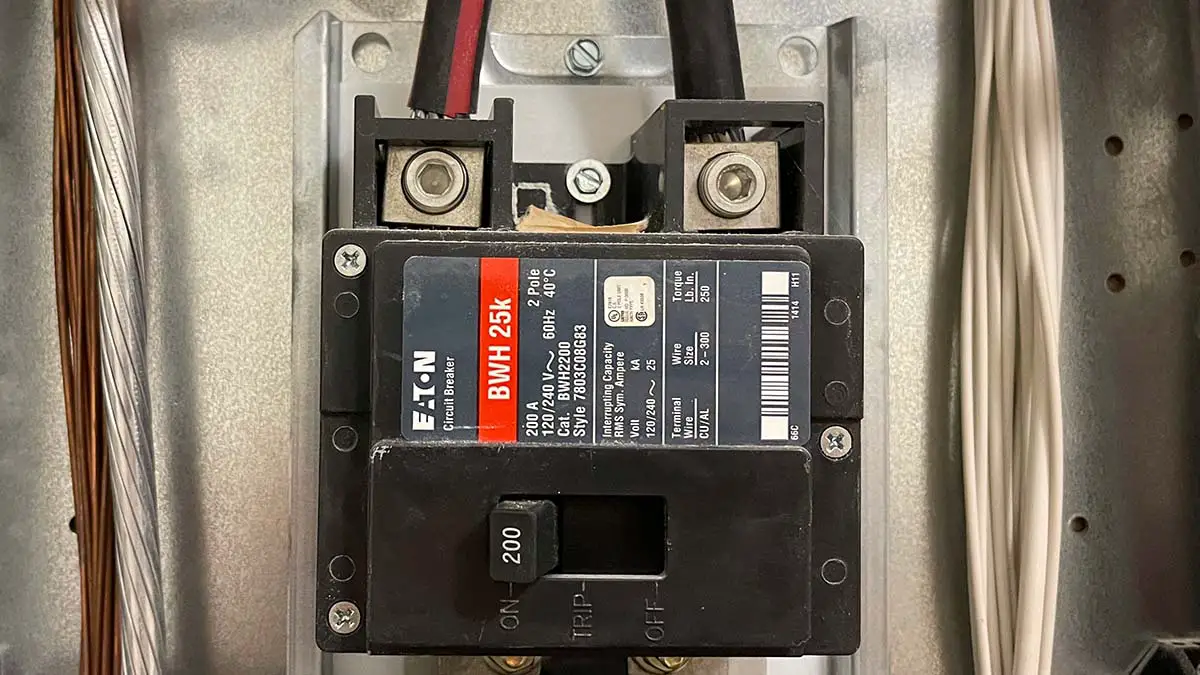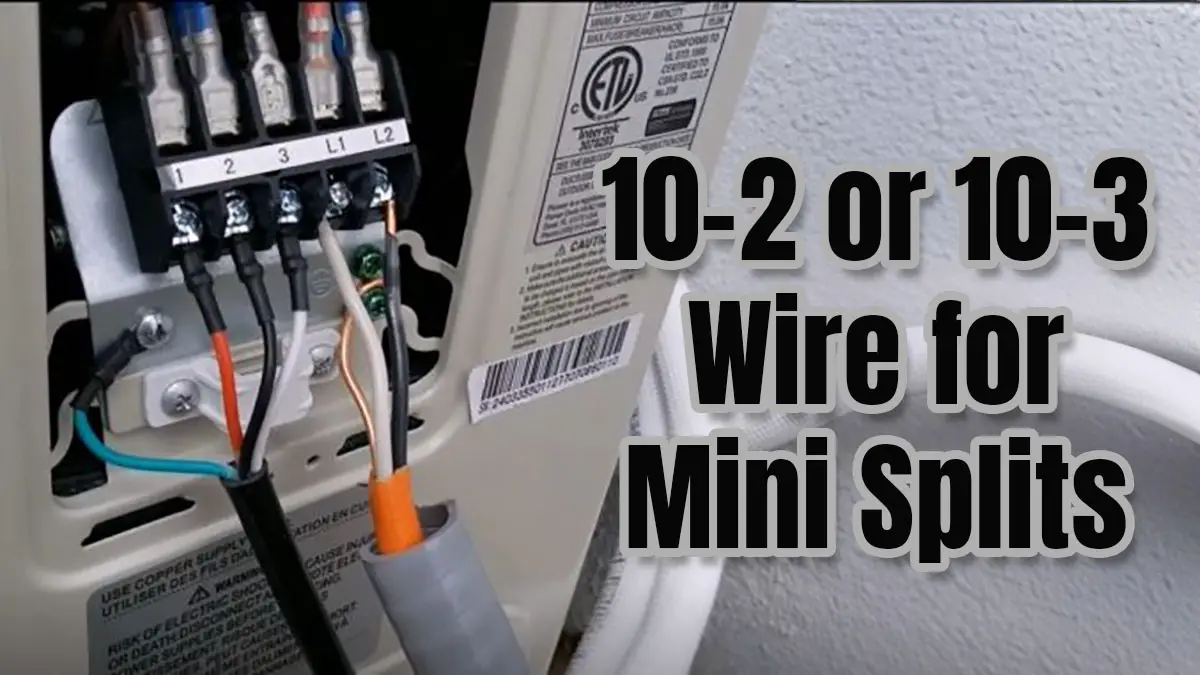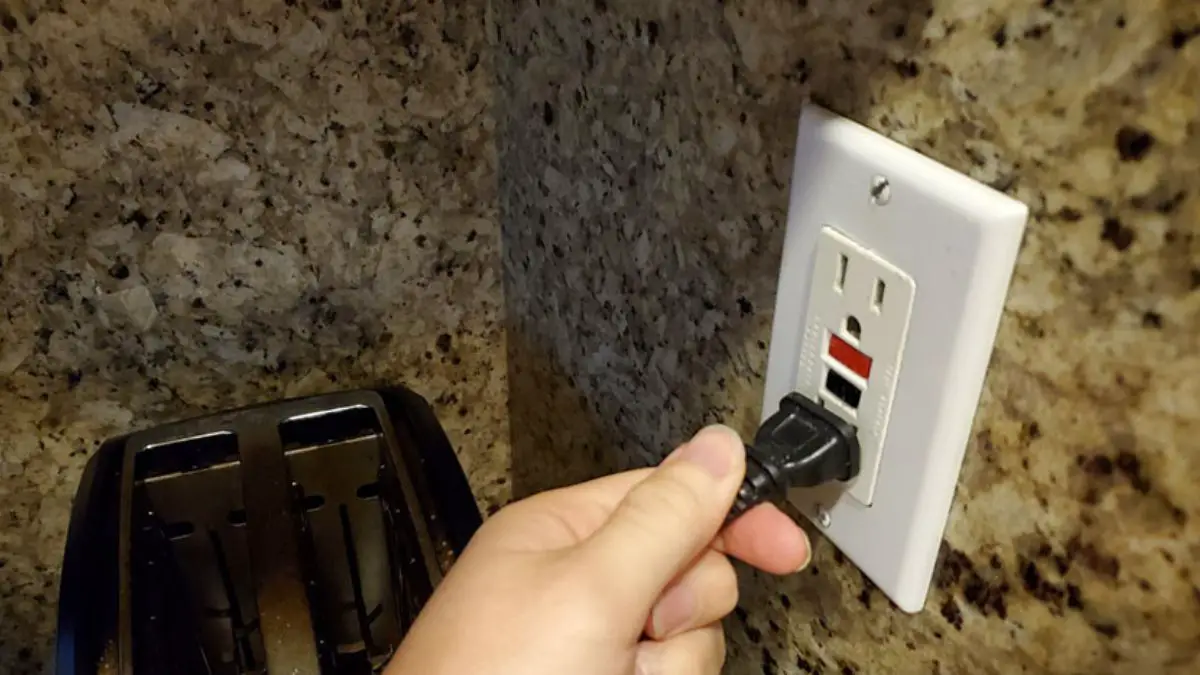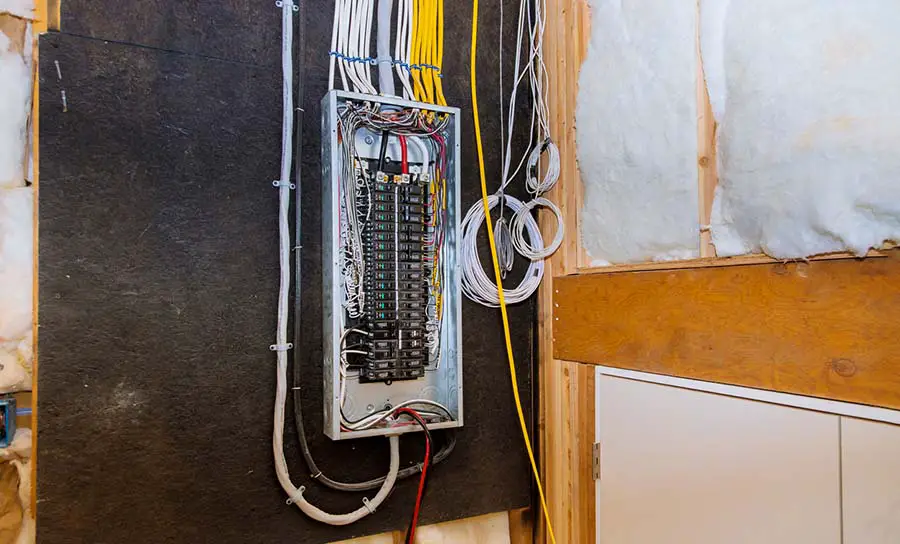
When it comes to electrical work, permits are a must in most cases. This is because electrical codes can vary depending on where you live, and by and large, any major electrical upgrades need to be overseen by a licensed electrical contractor. If you don’t have a permit, not only could the work end up being done incorrectly, but you may also find that your homeowner’s insurance policy does not cover it in the event of an accident or fire.
Electrical codes can vary from city to city, but, by and large, any electrical upgrades need to be done by a licensed electrician and will likely require a permit.
You’ll need a permit if you are:
- upgrading or relocating an electrical panel
- upgrading the meter base or service mast
- upgrading to 200amp service
- running new electrical wiring for an outlet, switch, or fixture
- adding a new breaker or circuit
- adding a subpanel
You won’t need a permit if you are:
- replacing an existing light fixture
- replacing an existing outlet
- replacing an existing light switch
- replacing a breaker inside the electrical panel
Do You Need a Permit for Electrical Work
If you’re doing any electrical work in your home, getting a permit is a necessary step. Some electrical repairs don’t require a permit.
You won’t need a permit for minor repairs like replacing light fixtures or tamper-resistant receptacles. But if you are upgrading your breaker box, service mast, or running new wiring, for example, you will likely need one. It’s always best to check with your local building or electrical codes department to make sure.
Why are Permits Required for Electrical Upgrades
Permits for electrical work exist to ensure the safety of life and property. Proper permits ensure that the person or company doing the work has the proper qualifications to do the job correctly. The permitting process is cumbersome but is necessary.
Doing electrical work without a permit can result in city penalties and fines. If you decide to perform unpermitted work, keep the following factors in mind.
Safety of Life and Property
Unpermitted work can have significant life and safety concerns over time. However, the cumulative impacts of lack of permit work accumulate over time and may pose a serious safety hazard to your family or would-be tenants. When it comes to electrical work, you don’t want an unqualified person doing major electrical work. It only takes one spark to alter your life forever. It’s just not worth the risk.
You Could Affect Your Home’s Resale Value
You’ll wish you pulled those building permits if you ever choose to sell your home. Even if you “get away” with not obtaining a permit when you make the first attempt, you’re going to run into a problem sooner or later because of unpermitted work.
Potential buyers may be hesitant to purchase a home where you did unpermitted work. Suppose they don’t immediately withdraw from the purchase. In that case, they will demand you obtain the proper paperwork or make a lowball offer because appraisers don’t account for unpermitted work in appraisal value.
As a seller, you’ll fill out a legally binding property disclosure. If you don’t mention any unpermitted work, the buyer may later sue you for compensation.
Problems Arising with Mortgage Lenders
Maybe you’d prefer not to sell your home and aren’t interested in appraisals. If you ever want to refinance your house, you’ll need an appraiser to evaluate it for you. Unpermitted renovations can halt your ability to refinance the home.
You won’t get a loan for the full value of your home, and you might be declined altogether.
If you acquire a property with major unpermitted work after the deal closes and your mortgage lender finds out about it, the lender could call the loan due and demand full payment.
Problems with Homeowner’s Insurance
Your insurance provider may refuse to compensate for any damage resulting from unlawful electrical work. If a fire started from unpermitted work, the insurance adjuster could deny a claim outright.
Code Violation Fines
The building inspector can fine you for not obtaining a permit. If they determine that work is ongoing, they can halt all work and fine you until the proper permits are obtained from the local building office. They can even make you undo all the work that has been done and start over.
Will You Need a Permit to do Electrical Work in Your Own Home
In most cases, the answer is yes. Electrical work done without a permit can result in fines, and it’s also a safety hazard. Electrical codes vary from state to state. If you’re not sure whether your project requires a permit, it’s best to check with your local building department.
Generally speaking, if you’re only doing light repairs – like replacing a receptacle or light switch – you won’t need a permit. But if you’re doing any major electrical work, it’s best to play it safe and get one.
It’s important to note that a licensed electrician should do all electrical work even if you don’t need a permit. Working on your electrical wiring can be dangerous and could lead to fines or even injury if something goes wrong.
Can a Homeowner Pull a Permit for Electrical Work?
People often ask me if a homeowner can pull a permit for electrical work? It largely depends on where you live.
Whether or not a homeowner can pull a permit for electrical work depends on the city where they live. Each city has its own permit procedures. Some cities have stringent regulations and only allow a licensed electrician or contractor to obtain the permit. In other cities and in rural areas, regulations are more relaxed or non-existent.
You’ll need to contact your city or county building department for their guidelines.
Applying for Electrical Work Permits
Before attempting any electrical work at home, be sure to check with your city or county municipality. You’ll need to know how to go about it and what electrical tasks are prohibited in your region.
A homeowner’s permit, homestead permit, or simply electrical permission is the term used to describe the document you’ll need. The city frequently wants to know that you have lived in the house for a specific amount of time, are on the deed, and that it is your primary residence.
Because you’ll need to own the property, too, manufactured homes don’t always qualify since the land is often leased. Homeowners are usually not permitted to change the main electric panel or install new electrical systems.
Some city offices require you to pass an electrical test. After that, you’ll need to submit a plan of your project and have it peer-reviewed by a professional before being granted the permit, which usually costs money. Expect a local official to inspect your job and ensure it complies after it’s completed.
Electrical Work Done Without Permit
You can face fines if you do electrical work without a permit, owing to building code violations. Unless you have professional training and experience as an electrician, you may inadvertently create a fire hazard, disrupt your electrical service, or put your family and house in danger. Paying extra for a licensed electrician might help protect you from headaches caused by such risks and provide peace of mind.
Fines for not having a permit are apparent can become troublesome when you attempt to sell your house later. Potential buyers may be less inclined to buy a property with unpermitted repairs, which might cause difficulties when trying to sell.
What Happens if You Don’t Get a Permit for Electrical Work?
Potential problems with unpermitted work can arise when you decide to sell a house. It’s doubtful that a buyer’s home inspector will check property records for permit history with a house. However, if a home inspector notes an issue, it could lead to the discovery of unpermitted work.
If you live in a city or state with stringent requirements, a code compliance inspection may be required before closing, which could require unpermitted work to be corrected.
A building inspector will examine the home for safety concerns related to city building codes in a code compliance inspection. If no safety issues are discovered, unpermitted work won’t matter. Generally, these inspections are looking for basic HUD minimum guidelines.
A home inspector is not a code inspector and has no legal authority to enforce any building code, past or present. Since a home inspector examines a home in the here and now and does not perform historical research. Since they can’t enforce building codes, there’s no way to ensure that all work done to a home over time was permitted.
A home inspector cites structural, mechanical, and safety issues on the inspection day. Even then, it’s informational for potential buyers with a recommendation to make repairs or improvements.
There is usually no significant impact for failing to obtain a permit, but not always. Requirements vary based on where you live. Permits are essential to ensure that work is done correctly by qualified contractors and meets present-day safety guidelines.
Keep in mind that you’ll fill out a property disclosure form when selling a house. Falsifying a legal document could have legal repercussions down the road if problems arise from the unpermitted work, and the new homeowner can prove intent to withhold information.
Will You Need an Electrical Permit to Change a Light Fixture
You generally won’t need a permit to change a light fixture, but it’s always best to check with your local electrical inspector. Some areas have more stringent electrical codes than others, so it’s important to know what is required to avoid any potential fines or problems down the road.
You will likely need a permit if you add a new light fixture. A lighting upgrade can involve changing the wiring or adding new fixtures, both of which require permits and electrical inspections. However, if you replace an old fixture with a new one, you may not need a permit. As always, it’s best to check with your local inspector to be sure.
Will You Need a Permit to Add an Electrical Circuit
When adding an electrical circuit, you most certainly will need a permit. Electrical codes vary depending on where you live, but by and large, any major electrical upgrades to your home will require oversight from a licensed electrician and will likely need a permit as well.
Whether you’re adding a new electrical circuit for a new outlet, light switch, light fixture, or new appliance, the inspection process ensures the work is done safely and correctly, even if you’re the one doing the work.
Will You Need a Permit to Add Electrical Outlets
You likely won’t need a permit to replace an existing electrical outlet. However, adding a new outlet is seen as an electrical update and likely will require a permit. Still, a licensed electrician needs to oversee electrical upgrades to your home and will likely require a permit.
Will You Need a Permit to Replace a Breaker Box
The electrical codes vary depending on where you live, but by and large, replacing a breaker box constitutes a major electrical upgrade to your home and will need to be overseen by a licensed electrician – and will likely require a permit.
If you’re upgrading a breaker box, moving a breaker box, upgrading the meter base or service mast, upgrading to 200 amp service wire size, running new electrical wiring, or adding a new subpanel – you’ll need a permit.
Do You Need a Permit to Add or Replace a Circuit Breaker
Yes, you will need a permit to add a new circuit breaker in most cases. Adding a circuit breaker constitutes an electrical upgrade, and any electrical upgrades need to be overseen by a licensed electrician. Adding a breaker will likely involve adding a new electrical branch wire.
However, there are some exceptions, like replacing an existing breaker. You generally won’t need a permit to do a circuit breaker replacement. Unlike adding a new breaker, replacing a breaker is a repair, not an upgrade. To be sure, it’s best to check with your local building or electrical codes department.


